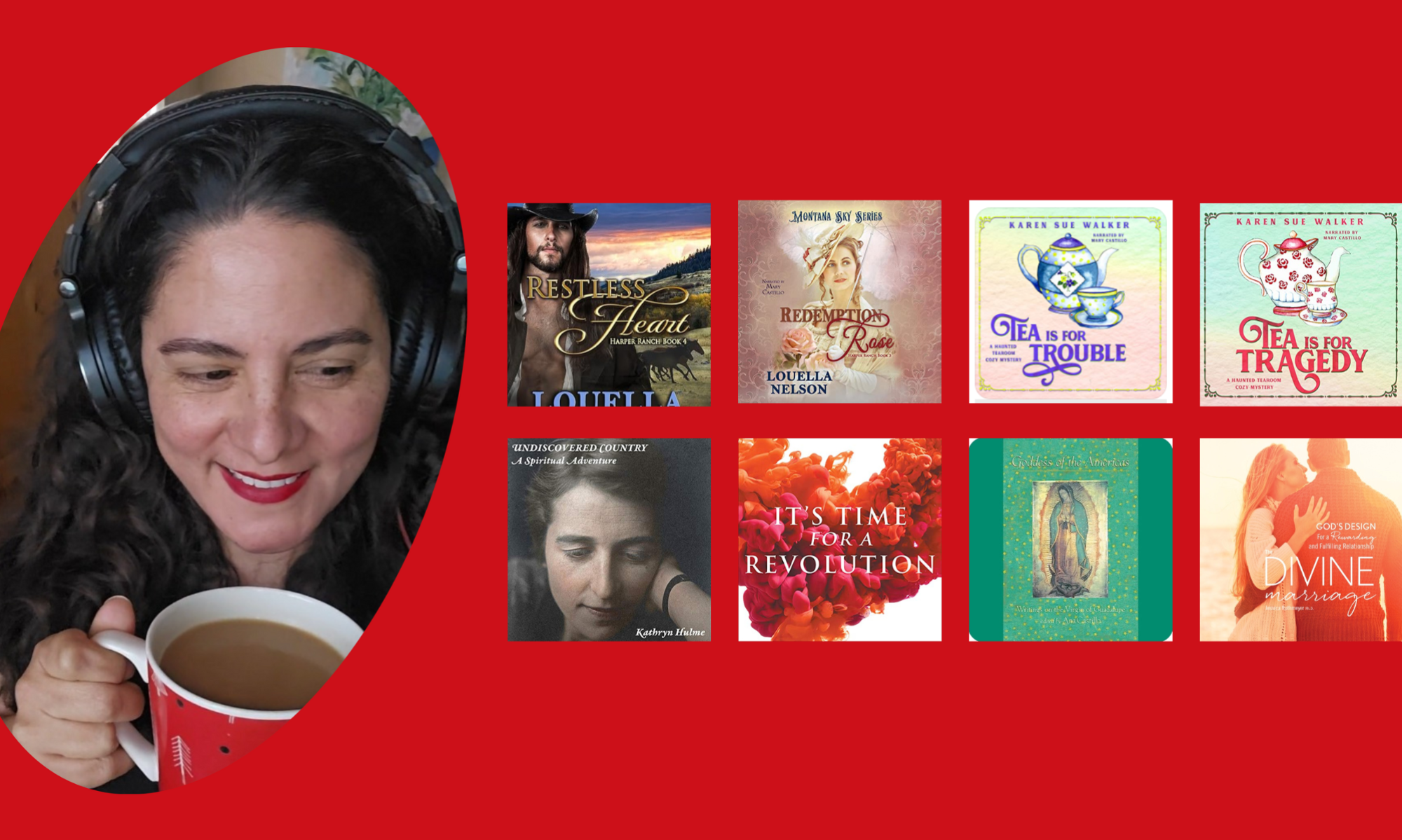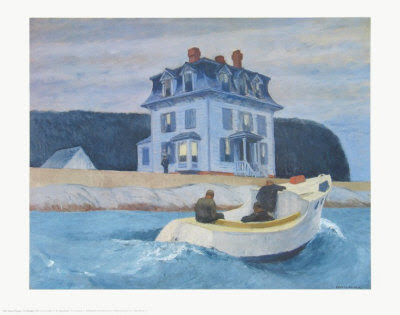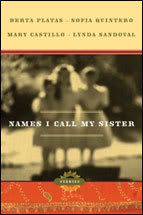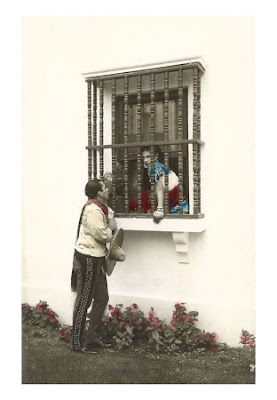
This month I’m giving away a signed copy of Marta Acosta’s best-selling comedy, Happy Hour at Casa Dracula. A few weeks ago, Marta had her way with me at her blog and now I’m returning the favor. Here’s what went down:
Chica Lit: Tell me about your Milagro del los Santos books.
Marta: My Casa Dracula series follows the adventures (and misadventures) of funny, quirky, well-intentioned, and occasionally clueless Milagro De Los Santos. Although she’s got a degree from a Fancy University (F.U.), she’s barely scraping out a living when she’s accidentally infected with a condition that causes her to crave uncooked meat, and also makes her sensitive to sunlight. The family who carries this condition thinks that Milagro is a trashy social climber, and she thinks they’re, well, vampires. The books are romantic comedies about someone who always feels as if she’s on the outside of things and desperately wants to belong, but not enough to give up her own identity.
Chica Lit: Milagro has such a distinct personality. Did she come to you first, or was it the idea of a vampire love story?
Marta: I think I probably began with the form of the story first. I wanted to write a romantic comedy like those that I’ve always enjoyed. So you’ve got the intrepid, likable, but occasionally oblivious heroine; the conflict of social classes; the misunderstandings; the eccentric characters; and the ridiculous coincidences. I was really focused on ways to make the story funny.
But I did think a lot about the kind of protagonist I wanted. I wanted her to have those personality traits that I love in my favorite fictional characters, from Jane Austen to P.G. Wodehouse. I didn’t want someone who was perfect because young people aren’t perfect. They lack the experience and cynicism to make wise decisions. They trust the wrong people. They act on impulse. Hopefully, they learn from their mistakes, but there are always new mistakes to make!
Chica Lit: Speaking of vampires, why do you think they make such appealing romantic figures?
Marta: Oh, I don’t think they’re particularly appealing, which is why I subvert the cliches in my stories. But I think the romance is that a vampire hero doesn’t have the usual guy flaws. He never leaves the toilet seat up at night, or spends a Sunday afternoon watching football and eating Cool Ranch Doritos. He doesn’t make snide comments about your parents, and he doesn’t bicker about what movie to see. A vampire would never show up for a date wearing sweats, carrying a six-pack of beer and tell you he doesn’t feel like going out, so can you cook something.
Chica Lit: And without changing the subject, what is your favorite vampire book or movie?
Marta: I really liked Joss Whedon’s shows, “Angel” and “Buffy, the Vampire Slayer.” Whedon does great characters, has wonderful ensemble casts, and really loves the English language. He takes chances and he lets his characters develop and change.
Chica Lit: When does your third book, The Bride of Casa Dracula come out and how long will you continue the series?
Marta: The Bride of Casa Dracula comes out in September and I’m supposed to be proofing the manuscript now! Simon & Schuster just bought two more novels, a fourth Casa Dracula novel and another romantic comedy that I’m really excited about and will be writing this year.
Chica Lit: I also read that you’re writing a young adult novel. How’s that coming along and when will it be released?
Marta: I am writing a young adult novel and I’m dying to finish it. But I’ve got deadlines for my other novels, so it’s on hold for now. It’s a Gothic and set in a mysterious and exclusive private school.
Chica Lit: Talk about how your journey to becoming a published author. Are there books lurking under your bed?
Marta: How many are under yours! Ha. I tried writing screenplays, but, as a friend who worked in Hollywood told me, “It’s who you know, and you don’t know anyone.” She was absolutely right, but I felt I had to knock on that door. Then I ran around and tried the windows, but they were locked, too.
I wrote one novel before Happy Hour at Casa Dracula, a noir thriller. Editors liked the writing, but said that it wasn’t marketable because it was too dark. I took a break from fiction and I began writing humor and columns. I’d always written funny stories, but I’d never taken my humorous writing seriously. (Well, no one takes humorous writing seriously.) I realized how much fun I had making people laugh and I decided to write a funny novel.
Chica Lit: And because you asked me, I’m going to ask you if, as a Latina, do you want your characters or stories to say anything about identity?
Marta: Absolutely. I want my characters to show a shared humanity. I want people to identify with Milagro and to realize that they’ve got a lot in common with her. I also want them to see what it’s like to be outside of things — but the thing is that everyone feels that way sometimes. Everyone has that moment when they’re watching everyone else having a good time and feeling like they don’t fit in.
Chica Lit: Have you faced any challenges as a Latina author, or had to deal with any misperceptions about who you are and what you’re writing?
Marta: Oh, I often think that if I wrote a story that fit the expectations about Latinos, I would have been published earlier. There’s the pressure to write magical realism, which is why you see so many shoddy knock-offs of Gabriel Garcia Marquez.
Marcela Landres, who’s an editor and has the Latinidad website and newsletter, has written eloquently on the subject of stereotypes and expectations, as has novelist Daniel Alarcon. To read the story, go here.
Chica Lit: Do you write to music?
Marta: I always listen to music as I write because it helps set the mood. Half of my chapter titles are taken from songs. My taste in music, like my taste in writing, is all over the place. I’m inspired by bitter, clever lyricists like Elvis Costello and Lou Reed. I like anything that rocks out, including old-school punk and metal.
Singers like Aretha Franklin and Frank Sinatra can really set a mood, and I think no one conveys a sense of yearning more than Al Green.
I like any song with “California” or “party” in the title, so of course I listened to “Hotel California” and “Party Hard” when I was working on my second novel, Midnight Brunch, which took place at a mysterious and lavish desert hotel.
My current favorite song is TV on the Radio’s “Wolf Like Me,” which I play loudly several times in a row, and I love the seriously funky “Bollywood Joint” from Spike Lee’s “Inside Man.”
Thanks Marta!
If you’d like to win a copy of this laugh-out-loud, HIGHlarious book, go to the Contest page and play to win! If you’d like to read Marta’s interview with me and learn more about her books, go to her blog.










